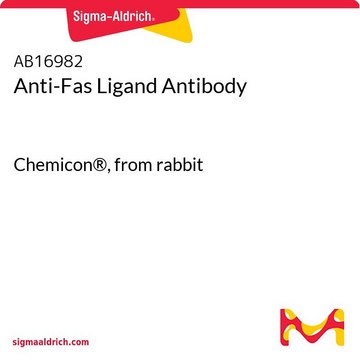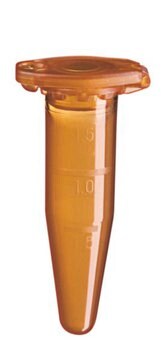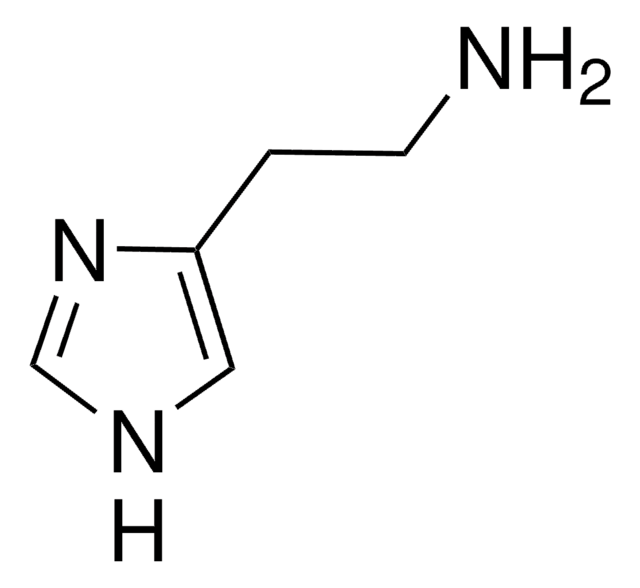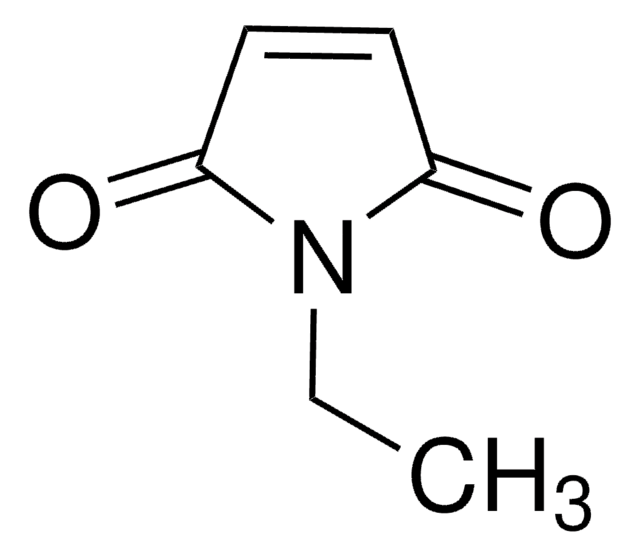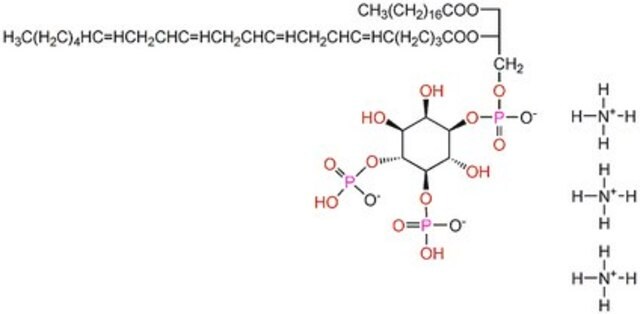AB5652P
Anti-Histamine Receptor 1 Antibody, CT
Chemicon®, from rabbit
Sinónimos:
H1R
About This Item
Productos recomendados
origen biológico
rabbit
Nivel de calidad
forma del anticuerpo
affinity purified immunoglobulin
tipo de anticuerpo
primary antibodies
clon
polyclonal
purificado por
affinity chromatography
reactividad de especies
bovine, mouse, rat
fabricante / nombre comercial
Chemicon®
técnicas
ELISA: suitable
western blot: suitable
Nº de acceso NCBI
Nº de acceso UniProt
Condiciones de envío
dry ice
modificación del objetivo postraduccional
unmodified
Información sobre el gen
mouse ... Hrh1(15465)
rat ... Hrh1(24448)
Especificidad
The immunogen peptide is 100% conserved in mouse and bovine, 94% in human, fish and monkey and 80% in guinea pig. Reactivity with other species has not been confirmed.
Inmunógeno
Aplicación
Inflammation & Immunology
Inflammation & Autoimmune Mechanisms
ELISA: 1:10,000-1:100,000 using 50-100 ng control peptide per well.
Optimal working dilutions must be determined by the end user.
Forma física
Almacenamiento y estabilidad
Otras notas
Información legal
Cláusula de descargo de responsabilidad
¿No encuentra el producto adecuado?
Pruebe nuestro Herramienta de selección de productos.
Código de clase de almacenamiento
12 - Non Combustible Liquids
Clase de riesgo para el agua (WGK)
WGK 2
Punto de inflamabilidad (°F)
Not applicable
Punto de inflamabilidad (°C)
Not applicable
Certificados de análisis (COA)
Busque Certificados de análisis (COA) introduciendo el número de lote del producto. Los números de lote se encuentran en la etiqueta del producto después de las palabras «Lot» o «Batch»
¿Ya tiene este producto?
Encuentre la documentación para los productos que ha comprado recientemente en la Biblioteca de documentos.
Nuestro equipo de científicos tiene experiencia en todas las áreas de investigación: Ciencias de la vida, Ciencia de los materiales, Síntesis química, Cromatografía, Analítica y muchas otras.
Póngase en contacto con el Servicio técnico
